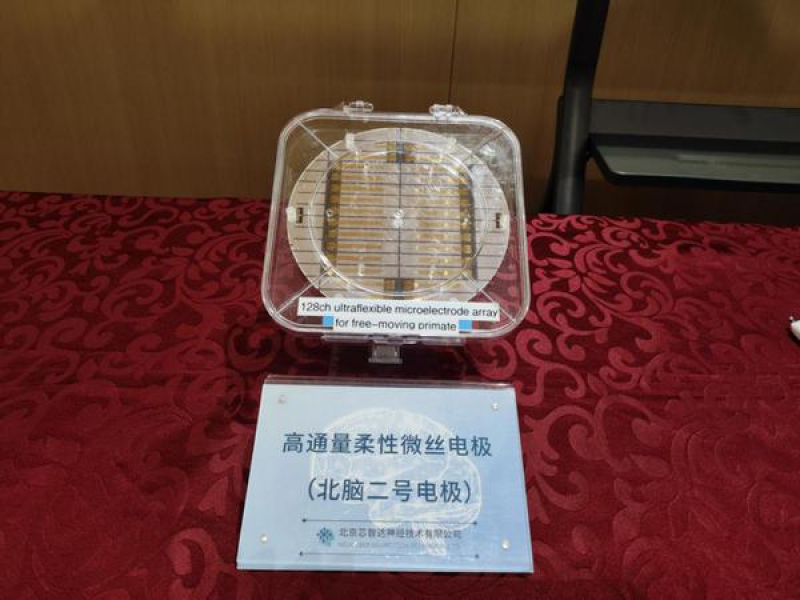High-performance invasive brain-computer interface nears clinical validation stage

The electrode in the Beinao-2 intelligent BCI system developed by Neucyber Neurotech (Beijing) Co Ltd. (Photo by Wang Songsong/chinadaily.com.cn)
Beinao-2 (The NeuCyber Array BCI System), a high-performance invasive intelligent brain-computer interface (BCI) system, is expected to enter the clinical validation phase next year, said Li Yuan, business development director of Neucyber Neurotech (Beijing) Co Ltd, on Thursday.
Unlike Beinao-1 (The NeuCyber Matrix BCI System), Beinao-2 enables 3D spatial and multi-dimensional fine neural control. By leveraging high-throughput flexible microelectrode arrays to capture large-scale neuronal firing signals within the cerebral cortex, it focuses on achieving dynamic precision motor control, cognitive restoration and enhancement, full-body navigational motion control, and visual reconstruction and enhancement.
According to Li, by working with Peking University First Hospital, Xuanwu Hospital Capital Medical University and Beijing Tiantan Hospital of the Capital Medical University, Neucyber Neurotech has finished five Beinao-1 implantation operations since the beginning of 2025, delivering motor and speech rehabilitation and functional substitution for individuals with spinal cord injuries, stroke, or amyotrophic lateral sclerosis.
Beinao-1 is the world's first high-throughput wireless fully implanted BCI system and is an electroencephalogram-based BCI system.
"Next, we will complete the official registered clinical trial for the Beinao-1 intelligent BCI system, continuing to advance technological optimization and application expansion, bringing hope to more patients," Li added.
As for the role of artificial intelligence in brain research, Li said there is a mutual promotion and integration relation between them.
"The reason we talk about BCI industry right now lies in artificial intelligence's role in neural coding and decoding. It's quite helpful," Li said.
Li added BCI offers a new perspective in brain research.
"As there are more and more data on BCI research, it will deepen our understanding on brain operation and promote artificial intelligence to evolve from 'information artificial intelligence' like large language model, to embodied artificial intelligence, like autonomous driving. Ultimately, at the brain-computer interface level, we see the potential for a true fusion of artificial intelligence and biological intelligence," Li said.